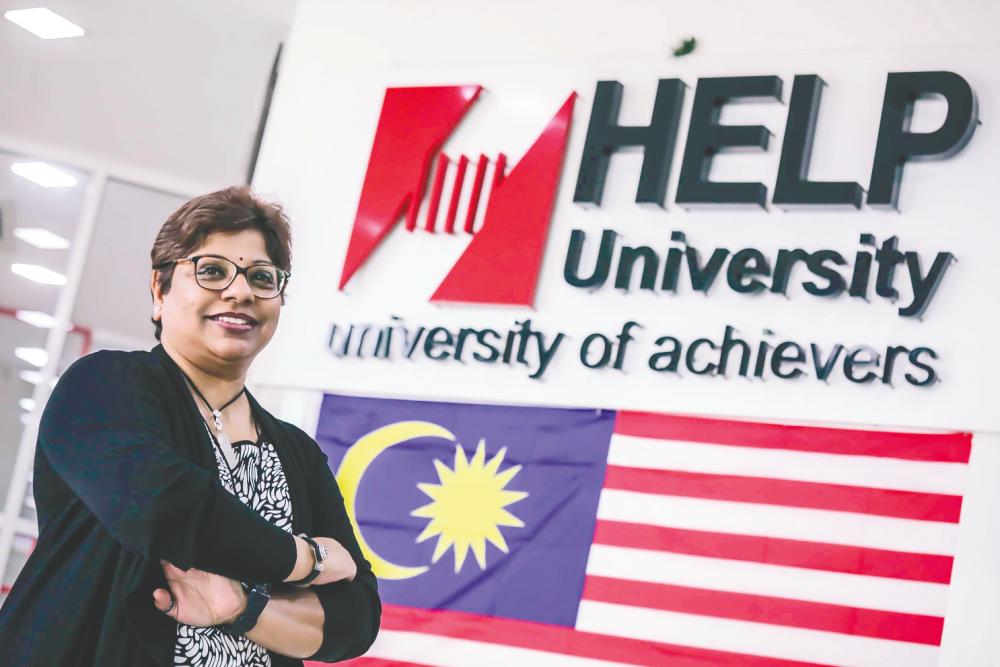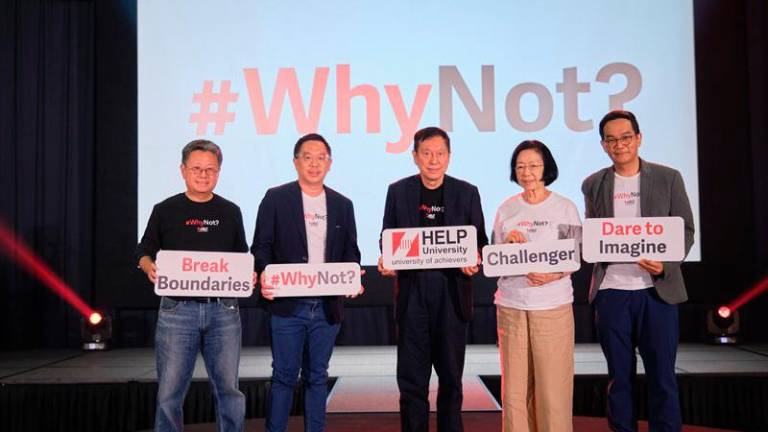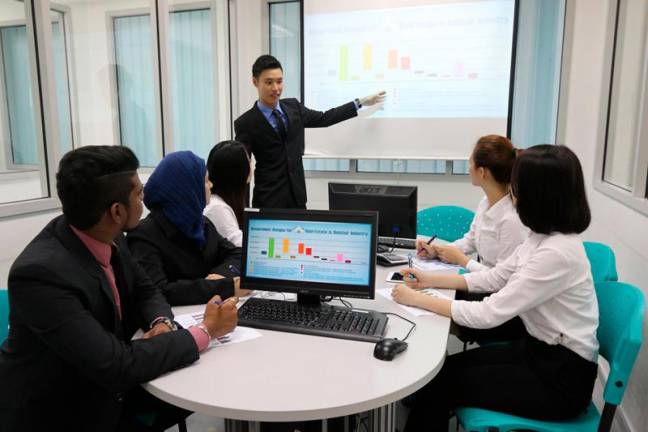AS of July, HELP University’s HELP Bachelor of Laws (LLB) Hons has been officially recognised by the Malaysian Legal Profession Qualifying Board (MLPQB). This development means that HELP Law graduates are now eligible to pursue the Certificate in Legal Practice (CLP).
Speaking to theSun, HELP University Faculty of Law and Government Dean Vasantha Punniamoorthy detailed the road to getting the HELP LLB degree recognised and the university’s approach in grooming law graduates.
How long has HELP University offered the Bachelor of Laws (LLB) Hons degree, and why did it take this long for the MLPQB to recognise it?
HELP University started off as HELP Institute in 1986. When we were upgraded to university college status in 2004, we began issuing our own degree programmes, including our own Bachelor of Laws which was approved by the Malaysian Qualifications Agency (MQA).
When we wanted to offer it, we needed to know whether the students could sit for the CLP. It’s a three-year degree programme, unlike how public universities and some private universities that offer it as a four-year programme. The fourth year is the Bar year, and those students don’t have to do the CLP exams.
As a three-year degree programme, we were preparing students to sit for the CLP, but the MLPQB first needed to give us the recognition to sit for the CLP. At that time, we were told to get the degree approved and accredited. In order for the MQA to accredit us, we had to run the programme first.
We had students joining us but we told them they could pursue an academic degree but will not be able to sit for the CLP. We offered the programme to students saying that they can do the degree but join other sectors. They were advised to
join corporate sectors like the banking industry, oil and gas, shipping etc. as legal advisors. Or, they were also advised to do the degree, followed by a Master’s programme.
These students came on board and did just that. At that point in time, we were advised by the MLPQB that they were not recognising any new degrees. We’re glad we finally got it.
How did HELP University and the Law Faculty go about in designing the degree to groom graduates that are able to fulfil the needs of the law practice?
As quite a number of my colleagues and I were former London external graduates, we always felt like our degree did not prepare us for the real world. What we have been doing here at HELP is to craft the curriculum incorporating practical modules, ie Legal Skills and Legal Practice, taught by practitioners alongside the substantive law subjects in such a way that we teach the normal law subjects like what any university would offer, all the fundamentals in the three years.
These two additional modules expose students to the fundamentals of lawyering skills, such as client counselling, negotiation, drafting, advocacy skills, mooting, managing a law firm etc. Everything has been embedded in the two modules, and the students are required to pass these two compulsory modules in order to move on.
From the beginning, HELP LLB has been crafted and designed to prepare students for the real world with the hope that at some point we would be recognised, and even if we were never recognised, these practical skills are relevant even if they do not go into legal practice.
Which aspect of law does HELP LLB focus on?
HELP LLB focuses on the practical aspects, and grooming employable lawyers. We do not believe in rote learning, and we expect them to be independent scholars. We stress a lot on research; they are expected to do their own reading, come to class prepared, along with doing a lot of presentations, as the methodology involves peer teaching, problem-based learning and case studies.
How does HELP LLB set itself apart from other institutions that offer a law degree?
I don’t know what others offer, but these two additional modules makes us stand apart from many others, even foreign universities. We also have a “Student Law Journal” similar to the Harvard Law Review; wherein the students set up the editorial board, they research, write and publish their own papers.
The other thing that makes us stand out would be the fact that our students have their own Law Students’ Conference, where other university students are invited to join. It’s not like a conference where academics present; it’s a conference for students to present.
We have been commended by several lawyers, where they say what we are doing is actually what law firms are looking for. That is why our mission is to groom employable lawyers.
FROM PAST TO FUTURE
Before the 18th century, students completed the Bar course and qualified as lawyers, before they started working in law firms. There was no necessity for a three-year academic degree programme, but now that the structure has changed, HELP encourages law students to learn what is expected of them when they become lawyers.
Students should know what to expect when they walk into a law firm to begin their career, as such they must be equipped with fundamental drafting and advocacy skills, as well as other basic foundational knowledge.














